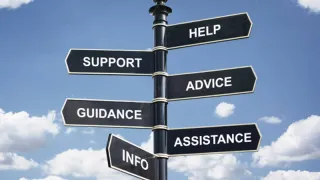It’s Not the Equipment — It’s the Communication Slowing Your Department Down
Clear communication isn’t just helpful, it’s the hidden engine that keeps your department running smoothly. ...more
Blogs
June 18, 2025•5 min read

What Occupational Therapy Month Can Teach Imaging Leaders About Patient-Centered Care
April marks Occupational Therapy (OT) Month. While you might not think of occupational therapists as closely tied to the work of radiology, they’re some of the best, patient-centered problem solvers i... ...more
Blogs
April 21, 2025•8 min read

Listen, Think, Act: A Radiology Leader’s Mantra for 2025
I always considered myself an intentional, self-reflective leader who considers different perspectives and makes thoughtful decisions. But recently, I found myself in the fishbowl – caught up in the w... ...more
Blogs
April 21, 2025•6 min read

The Transformative Power of Mentorship: A Journey of Growth, Connection, and Impact
Mentorship—a word that often conjures images of seasoned professionals guiding eager mentees through the labyrinth of career challenges. But for me, mentorship has been a deeply personal journey of di... ...more
Blogs
April 20, 2025•4 min read

Success is About Becoming, Not Waiting
Too many professionals hold themselves back, believing they need the perfect moment—the right job, the right opportunity, the right level of confidence—before they take action. ...more
Blogs
April 20, 2025•3 min read

You Don’t Need to Be a Guru to Be a Mentor: Busting the Biggest Mentorship Myths
When people talk about mentorship, it often sounds like something reserved for the highly accomplished—people with corner offices, decades of experience, and awards on their shelves. ...more
Blogs
April 20, 2025•4 min read

